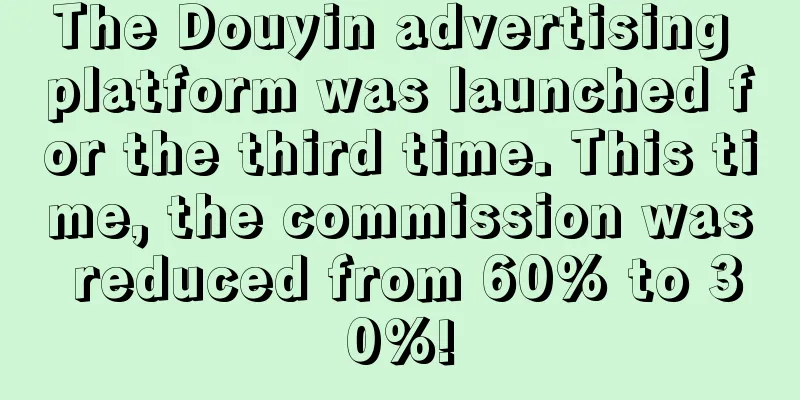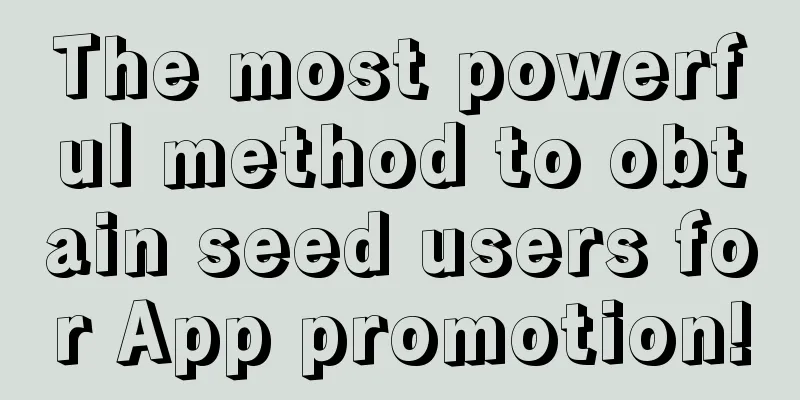How do app entrepreneurs get investment?

|
Editor's note: Howard Morgan is the founder and partner of First Round Capital, a leading venture capital firm. He is also the president of management consulting firm Arca Group and director of Idealab. In this article, he tells App entrepreneurs how to prepare for investment from an investor's perspective.
The best thing about creativity is that it costs nothing. Today you have many channels to turn app ideas into reality, and their costs are generally low. However, when you start to build a team to develop and operate this app, you need more than just sporadic income. The target audience of this article is entrepreneurs who already have an app that may survive. When you have a product ready to go online, you need to have enough funds and some people who can help you advance. This "support group" often includes senior angel/seed investors and venture capitalists. To ensure that they don't leave you, you need to do enough homework. You need to first explain your ideas to these people, hoping that they can help you promote this project and your own development. Finding reliable investment is similar to going out for a job - you hope to work for yourself and achieve professional self-realization, and this money can help you do it. So how do you prepare? First, ask yourself if you're ready for a conversation with an investor. You're lucky to get a meeting, but you usually only get one, and it's with someone who might be a supporter. Ask yourself: Can you prove the idea's effectiveness in a short period of time? Can you effectively acquire users and achieve profitability? If the answer to these questions is yes, then you need to design a well-organized PowerPoint presentation of about 10 pages to explain how you will execute the idea and scale it. If you don't know what to include in your presentation, try searching for sample documents or refer to this video about competitors. Next, you need to collect the right investors. Note that you need to match this list with investors who have invested in related fields before, because they understand the potential size of this field. If you need a $200,000 seed round investment, don't look for a growth fund, it will only waste your time. Your list of investors still needs to be repeatedly considered. If you want to learn more information, you can try searching on Crunchbase and AngelList. After you have identified your target investors, you can find someone to help you make introductions. If you can get a chance to talk to investors through personal or work contacts, take advantage of it. Introductions can often make your financing process smoother. Following this line of thought, you can try to hire someone with rich connections to serve as a company consultant, or ask him to help make an introduction in exchange for a small amount of stock options. But please note that you must carefully identify and select this "introducer". If you don't have such a person to guide you, you need to spend more time preparing. You should focus on a certain investor in the fund. Speaking of this, I remembered a successful example. This startup company is engaged in outdoor camping. Their founder made a list of possible funds and investors behind them. Then she hired a freelancer on UpWork to help search for photos of these investors' lives to see which of them would go hiking and camping outdoors in their spare time. She believed that these investors would better understand the gaps in this field and understand how she solved the pain points. With this method, she successfully raised more than one million US dollars. Once you have made the list, you need to come up with a combination of ideas within a certain time frame. You should email everyone on the list within one to two weeks. If your idea is strong enough, it will spark a wave of discussion in the investment community. If you are targeted and well-planned, you are likely to get a series of meetings with investors in a short period of time, so that you have more conditions to compare and choose from. On your road to raising money for your app, don’t forget to attract the attention of the angel/seed investor community. One way to achieve exposure is to participate in some events such as startup competitions and pitch competitions. These events are hosted by universities in related fields, some of the largest incubators and accelerators such as ERA, YCombinator, TechStars, and some of the largest angel organizations such as The App Idea Awards. Participating in these competitions enables you to get a lot of valuable feedback and help your product build momentum. In addition, you can also let more investors know about your product at the same time - including those who were not on your list before. If your idea is strong enough and your combination of punches is effective, you will get a series of opportunities to meet with investors. Personally, I may only choose 10% of the startup teams among all the invitations sent to me, and only 1% of the products will eventually get investment. If you want to increase the probability of obtaining financing, you must ensure that your story is strong enough and you must be prepared to answer any questions. There is no fixed routine for meeting with investors. Everything depends on your business model. In past meetings, I often asked entrepreneurs about their understanding of the basic economics of this business. For example, I would ask them, "What is your user acquisition cost and user lifetime value?" If the lifetime value is significantly higher than the acquisition cost, the business model is sustainable. Secondly, I would ask them, "What channels do you use to develop users: word of mouth, advertising, social media, or other? What percentage of each will be? Or how many users can each channel cover?" "If you think your app has the potential to spread virally, what percentage of newly acquired users will be?" In addition, I am also willing to learn about your team. You should prepare a description of the background and experience of the members to understand why they are qualified for the development and operation of the App. ***I want to know how you will use the investment I give you, will it be used for marketing, development or other? Because of the size of the round, your first meeting will often be with a senior investor. So don’t get discouraged if they don’t show interest in investing after this meeting. After each successful meeting, you can negotiate with a more senior member of the investment team. Your first meeting may be at the partner level, or it may be the entire investment team. Generally speaking, investors will not reject you immediately because it is just a matter of time before you can meet the criteria. Maybe after a while, when you have made some progress, they will extend an olive branch again. By the way, remember to thank them for their time after the meeting. If they ask you to follow up on anything, be sure to do so. And don’t forget the wisdom of communication: let investors know when you break through some key indicators, but don’t report everything to them - it won’t get you anywhere. If you don’t hear from them in a few weeks after the meeting, move on to the next investor on your list. For App entrepreneurs, being timid is not an option. You must know that you have chosen a high-risk but high-return path. Of course, sometimes we investors make mistakes. For example, we missed the first round of financing for Twitter and Airbnb. So I believe that when you have a viable business model, solid technology and a tenacious team, you will definitely get investment. I wish you all good luck! |
<<: Mobile Map Technology Sharing
>>: Best Practices for Agile Data Operations in Internet Finance—Wang Tong
Recommend
iOS 8.4.1 beta 2 update: mainly fixes bugs and improves performance
Apple today released the second beta of iOS 8.4.1...
Second-category e-commerce advertising: Analysis of the three common misunderstandings in product selection and hot-selling products!
The hot-selling products in the second-tier e-com...
Everyone is talking about UGC operation, but do you know what the core of UGC is?
UGC is the abbreviation of User Generated Content...
How to promote user sharing and dissemination?
For internet dogs, it is easy to organize an even...
collect! Content requirements for food advertisements
Advertisement refers to commercial advertisements...
Web Dev: 2017 highlights and 2018 predictions
What exciting events in 2017 have the industry le...
Moka Laojing's "Have Strong Confidence" Mentality Course 2.0 HD version creates the underlying logic of life and cultivates a strong personality charm
Moka Laojing's "Have Strong Confidence&q...
How to guide users to create content from 0 to 1?
1. What did Lukou Community do from 0 to 1? Lukou...
Mourinho's view on the hot money model focusing on leading stocks column video
Mourinho's market-watching hot money model fo...
Is it expensive to join the Hami Underwear Mini Program? Hami Underwear Mini Program Franchise Fees and Process
For entrepreneurs, although mini program developm...
Introduction to key new features of iOS 14, the list of supported devices may be the same as iOS 13
iOS14 Apple's next-generation iOS operating s...
Will iOS 16 be upgraded? Read these four major upgrades before deciding
At this WWDC22, many iPhone users are most intere...
iOS version of WeChat upgrade supports changing WeChat name: there is also an independent switch for dark mode
Previously, the Android version of WeChat already...
How to control costs while improving conversion effects through advertising?
For those who are new to the industry, it may be ...
Unveiling MINISO’s private domain growth strategy
In 2020, the offline industry was hit by the epid...









